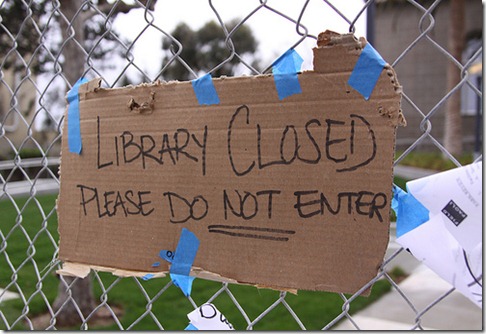 In Roman times, there was a uncommon military discipline practice called decimation. Meant as a way to punish cowardly or mutinous soldiers, it was a brutal practice in which groups of ten would draw lots; one man would be selected to be killed by the other nine men through clubbing, stoning, or only with their hands and feet. This ‘removal of a tenth’ punishment sent a clear message to the survivors: your actions (or lack of action) put you at risk for a disgraceful death. It was warning to all, a vicious lesson that the cruelty of the battlefield is nothing compared to the cruelty of your fellow countrymen.
In Roman times, there was a uncommon military discipline practice called decimation. Meant as a way to punish cowardly or mutinous soldiers, it was a brutal practice in which groups of ten would draw lots; one man would be selected to be killed by the other nine men through clubbing, stoning, or only with their hands and feet. This ‘removal of a tenth’ punishment sent a clear message to the survivors: your actions (or lack of action) put you at risk for a disgraceful death. It was warning to all, a vicious lesson that the cruelty of the battlefield is nothing compared to the cruelty of your fellow countrymen.
With this emergence of a seemingly constant cycle of state and local budget crises occurring around the United States right now, this would be the perfect opportunity for the library profession to engage in some introspection. There is no better time than the present to engage in critical evaluation of the librarian as a profession, the public library funding models, the state of advocacy, and the current vision and path of the public library. I do not believe that the status quo of these aspects create a stable future continuity. This is the right time to get our proverbial house in order so as to secure the future of the institution in ten, twenty, fifty, and one hundred years from now.
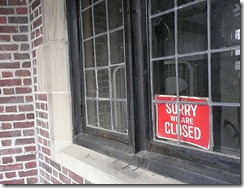 First, there needs to be a philosophical shakeup in the librarian professional ranks. Quite frankly, let’s face it: there are librarians working out there right now that are poor representatives of the profession. I’m talking about the people who actively exclude a particular group from receiving their attention or service. For example, librarians who serve children and adults but not teens (as if teens, once they would advance to maturity, would magically return to the library). Or those who have no time or empathy for the computer illiterate or others who require attention effort. I’m also talking about librarians who are incapable or unwilling to try new things. Whether it is online services or a different way of arranging the physical collection, this conservative mindset of “This is how we’ve always done it” permeates and stifles any attempts at better practices.
First, there needs to be a philosophical shakeup in the librarian professional ranks. Quite frankly, let’s face it: there are librarians working out there right now that are poor representatives of the profession. I’m talking about the people who actively exclude a particular group from receiving their attention or service. For example, librarians who serve children and adults but not teens (as if teens, once they would advance to maturity, would magically return to the library). Or those who have no time or empathy for the computer illiterate or others who require attention effort. I’m also talking about librarians who are incapable or unwilling to try new things. Whether it is online services or a different way of arranging the physical collection, this conservative mindset of “This is how we’ve always done it” permeates and stifles any attempts at better practices.
Personally, in the future, I think that the main focus of librarianship will rest on two areas: transliteracy and customer service. For me, transliteracy is the best umbrella concept to the multi-disciplinary knowledges that the future of information will require. With information storage occurring in a multiple of mediums (audio, video, and written recordings, for example), the ability to navigate the formats will become a necessity. As to the latter, customer service is perhaps our most touted and most overlooked professional criteria. People skills are a sorely overlooked basic requirement of librarianship. A librarian could be well versed in every item in a library, but it wouldn’t matter a single bit if they lack the social skills to communicate this information with the patrons. Our jobs exist because of the people who come there, not the materials; otherwise, they could just hire a watchman to mind the building. I’m not aware of any library programs that teach any aspect of this vital skill, whether it is managing different personalities, conflict resolution, or other forms of social diplomacy. And this needs to change.
This aspect extends to our paraprofessional and support staff. In a nutshell, checking in and out materials and maintaining patrons records is trainable; finding someone who will act as an advocate for the library at the desk that most patrons interact with is not. And yet, we hire on the basis of the first part without much thought or consideration as to the face that we are giving the library by putting this individual at our most prominent position: the circulation desk. This simply cannot continue as a hiring practice.
With less public libraries around, it is my belief that there will be greater emphasis on the aforementioned skills when it comes to hiring. A tighter job market will (in theory) place bad and mediocre librarians at a hiring disadvantage. In turn, librarians who do not meet muster will be weeded out and replaced over time. Over a longer timeline, the profession can work towards attracting people who possess the transliteracy knowledge and customer service skills that will be vital to the future of the library as an institution.
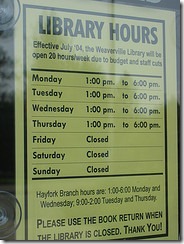 Second, the current public library funding models need to be re-evaluated (and in some cases, restarted completely). Whether it is a dedicated tax line or levy, allotment of public funds, greater care and consideration need to be established between the library and those who write the checks for the funds. While this is not a universal issue in libraries (there are libraries that enjoy a good relationship with their respective local governing bodies), what is not universal is the knowledge or determination to establish and maintain this important relationship through all types of economic and political climates.
Second, the current public library funding models need to be re-evaluated (and in some cases, restarted completely). Whether it is a dedicated tax line or levy, allotment of public funds, greater care and consideration need to be established between the library and those who write the checks for the funds. While this is not a universal issue in libraries (there are libraries that enjoy a good relationship with their respective local governing bodies), what is not universal is the knowledge or determination to establish and maintain this important relationship through all types of economic and political climates.
One of the lessons that I am learning in New Jersey right now is that the majority of elected officials do not have an ounce of a clue as to what the library does and how it impacts their constituents and communities. It is not a stretch of the imagination that, since they are voting for expenditures that fund programs and services for which they know nothing, they would not have an equally hard time cutting or eliminating such funding from the budget. These are the people that libraries rely on for the money that will keep their doors open. It is our failure to educate them as to the importance of library funding, the return of taxpayer investment in materials and services, and the overall impact on the people and the community. It is up to the profession to work towards better funding models by establishing and maintaining better relationships with their governing bodies.
In the absence of this commitment, there are inherent benefits to the restarting of library funding after being completely eliminated. While some may object to a complete loss of funding under the notion that re-establishing funding is an near insurmountable obstacle, this ignores the longer timeline of the institution and the greater benefits of (for lack of better phrase) fresh funding. It can offer a clean slate for the construction, layout, materials, and overall design of the library facility. I cannot imagine that there is not one librarian out there who cannot think of a library that could use a fresh start. The overall “feast and famine” years of library funding have a created locations across the country that reflect a mishmash of time periods and renovation expenditures. Personally, I’d rather have a library eliminated from a budget, return under a swell of community support, and begin anew than limp along with fickle cyclical funding and mediocre support.
With less public libraries, it will be the time to see which funding models thrive or flounder. These financial schemes can be evaluated and replicated in places that are looking to start or restart their libraries. Furthermore, it can create a chance to examine the relationships which impact library funding. In studying this aspect further, the profession can look at ways to instruct librarians (both old and new) as to how best to pursue their government financial minders. With perpetuity in mind, the profession can work towards creating the relationship that will result in a lasting funding scheme.
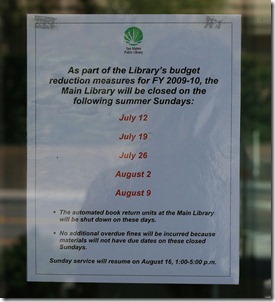 Third, library advocacy needs to move to a more consistent feature as part of the profession. The present prevalent format (desperate reactionary advocacy) should not be the status quo. It cannot continuously be an act of survival, content in the notion that the library get just enough funding to fight another day. While generally on a longer timeline, it begs compassion fatigue as the library funding needs to saved yet again.
Third, library advocacy needs to move to a more consistent feature as part of the profession. The present prevalent format (desperate reactionary advocacy) should not be the status quo. It cannot continuously be an act of survival, content in the notion that the library get just enough funding to fight another day. While generally on a longer timeline, it begs compassion fatigue as the library funding needs to saved yet again.
Advocacy needs to be placed at the forefront (in both job duty and as a core graduate class component) as an active relationship between the library and the surrounding community. Set aside from the funding bodies (covered in the previous section), this activism seeks to maintain relationships between the library and active supporters (people who use the library) and passive supporters (people who support the library as an institution) [Otherwise known as my parents.] It benefits the institution to promote and cultivate this relationship in order to direct collection development and services, but acts as an additional system of political and/or financial support when the library/funding body relationship is less than stellar.
With less public libraries, there will be more emphasis placed on advocacy as a outreach approach, advocacy as a job skill and job duty, and advocacy as a more prominent and integral part of the profession. It is a shift from a completely reactive activism paradigm to a more proactive one. Without a renewed importance on these community relationships, the library as an institution will continue to dither, moving from one crisis (funding and public support, or lack thereof) to another (tripe existential “Are we still relevant?” blathering) in a non-constructive ceaseless pattern for a very long time. The activism that the profession embraces now as a larger core value sets the model and ground work for future librarians and their community relationships.
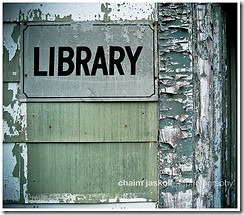 Fourth, the current vision and path of the public library needs some prolonged and serious discussion. This is already occurring in different places at different levels, but even with the amount of communication technology present, there seems to be people missing out on these dialogues. Even then, there is emphasis on particular aspects (such as Web 2.0, specific forms of outreach to niche communities, age based collection development, and so forth) rather than the library as an institutional whole. This is the conversation that really needs to happen before those in the profession attempt to fill in the details.
Fourth, the current vision and path of the public library needs some prolonged and serious discussion. This is already occurring in different places at different levels, but even with the amount of communication technology present, there seems to be people missing out on these dialogues. Even then, there is emphasis on particular aspects (such as Web 2.0, specific forms of outreach to niche communities, age based collection development, and so forth) rather than the library as an institutional whole. This is the conversation that really needs to happen before those in the profession attempt to fill in the details.
For myself, I don’t feel that there is a coherent macro-level debate. Maybe I don’t read the right blogs or trade publications or have the right connections, but what I read and hear is generally wrapped up in keeping libraries running or trying to modify an existing feature. It’s not that these smaller talks don’t have a place in library discussions, but it seems slightly out of step. It’s like trying to value how much gold will be extracted from the ground without knowing where you will be mining, nevermind whether there will be any gold to be found. The question for me remains as this: what will the libraries of the future look like, act like, and what is their place in the community? The closing of public libraries should bring this question into sharper focus. And the answers, when discussed across the profession as a whole, should give better direction and purpose to those in the public library profession.
In my reckoning, it will take a catalyst such as the closing of more public libraries to reach this time in the wilderness. This modern decimation of our shared public institution should be the time to draw a new lesson: that it is not the end of the dreams of Franklin and Carnegie, but it is the beginning of a new era in the public collection and dissemination of knowledge. To step forth into this future, we must break from some practices of the past. If it takes the closing of libraries today in order to secure the future of libraries tomorrow, as painful as this would be, it just might be the right thing for the librarian profession.
Additional thoughts on this idea: The World Without Public Libraries
Edit: I added a link to the Libraries and Transliteracy blog, run by librarians Bobbi Newman, Buffy Hamilton, Brian Hulsey, and Tom Ipri. In their About section, they state that the blog is “a group effort to share information about the all literacies (digital literacy, media literacy, information literacy, visual literacy, 21st century literacies, transliteracies and more) with special focus on all libraries.” As I feel that this skillset will become vital to the profession in the future, please check out their blog. It has some great posts; for certain, they are food for thought and you may just end up learning something new.



![cropped-tedxnjlibraries[1] cropped-tedxnjlibraries[1]](https://agnosticmaybe.files.wordpress.com/2010/05/croppedtedxnjlibraries1_thumb.jpg?w=512&h=152)
![4584505495_dedeac7d75[1] 4584505495_dedeac7d75[1]](https://agnosticmaybe.files.wordpress.com/2010/05/4584505495_dedeac7d751.jpg?w=585&h=448)
![4584494149_2ce56b4d08[1] 4584494149_2ce56b4d08[1]](https://agnosticmaybe.files.wordpress.com/2010/05/4584494149_2ce56b4d081.jpg?w=588&h=457)
![4584439553_83e66f8a2d[1] 4584439553_83e66f8a2d[1]](https://agnosticmaybe.files.wordpress.com/2010/05/4584439553_83e66f8a2d1.jpg?w=584&h=457)